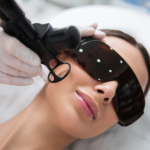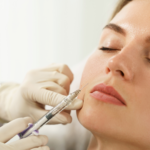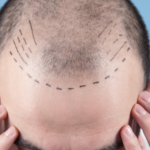Dull complexion or uneven Skin tone
Dull complexion or uneven skin tone is a common issue that many people face, often without fully understanding its causes or implications. This condition can arise from various factors and may worsen over time if left untreated.
What leads to uneven skin tone or a dull complexion?
The primary culprits behind uneven skin tone or a dull complexion include:
Excessive sun exposure: Spending too much time in the sun can stimulate the production of melanin, leading to uneven pigmentation and a lackluster complexion.
Oily skin: Oily skin may experience fluctuations in sebum production, leaving it susceptible to damage and discoloration.
Hormonal imbalances: Fluctuations in hormone levels can disrupt melanin production, resulting in patches of uneven pigmentation.
Who is at risk of dull complexion or uneven skin tone?
While dull complexion can affect anyone, certain factors may increase the risk, including:
History of acne: Individuals who have experienced severe acne in the past may be more prone to developing uneven skin tone.
Acne scarring: Scars left behind by acne breakouts can contribute to a dull complexion.
Internal factors: Hormonal imbalances or medical conditions may heighten the risk of uneven skin tone.
Sun exposure: Prolonged exposure to sunlight can exacerbate skin discoloration.
Signs of uneven skin tone or dull complexion:
Recognizing the early signs of uneven skin tone can help address the issue before it worsens. Some common indicators include:
Loss of radiance: A gradual decrease in skin brightness may signal the onset of a dull complexion.
Skin damage: Damaged skin, such as rough texture or visible imperfections, can indicate uneven pigmentation.
Sun spots: Dark spots or sun-induced pigmentation changes may suggest an uneven skin tone.
Preventing dull complexion:
While preventing dull complexion entirely may be challenging, certain measures can help mitigate its effects:
Hydration: Keeping the skin well-moisturized through adequate water intake and hydrating skincare products can promote a more even complexion.
Dietary considerations: Consuming a balanced diet rich in vitamin C and avoiding excessive sugar and fatty foods may support skin health and tone.
Limiting alcohol consumption: Alcohol consumption can damage skin cells, so moderating intake may help prevent or alleviate dull complexion.
Treatment options for uneven skin tone at Oasis:
At Oasis, various treatments are available to address uneven skin tone and dull complexion, tailored to individual skin types and concerns.
For mild discoloration:
Vitamin C creams: These creams provide gentle exfoliation and may help even out pigmentation.
Skin brightening creams: Formulated to regulate melanin production, these creams can promote a more uniform skin tone.
For severe discoloration:
For more complex cases of uneven skin tone, Oasis offers advanced treatments:
Laser peels: This procedure targets melanin in the skin’s upper layers, reducing discoloration and promoting skin renewal.
Microdermabrasion: By removing old skin cells and stimulating new growth, microdermabrasion can improve skin tone and texture.
Chemical peels: Chemical peels exfoliate the skin, accelerating cell turnover and reducing pigmentation.
Skin Lightening Therapy: This comprehensive therapy includes various treatments to lighten dark patches and promote a brighter complexion.
Laser Toning: Using specialized laser technology, laser toning reduces melanin levels in dark areas for a more even skin tone.
IPL Photo-rejuvenation: IPL therapy targets dull and dark patches, rejuvenating the skin for a brighter, more youthful appearance.
Why choose oasis?
At Oasis, our experts understand the impact of skin concerns on overall well-being. From initial consultation to treatment selection, we prioritize personalized care and utilize cutting-edge technologies to deliver optimal results. If you’re ready to bid farewell to dull complexion and embrace radiant skin, schedule an appointment with Oasis today and unlock your true beauty potential!





